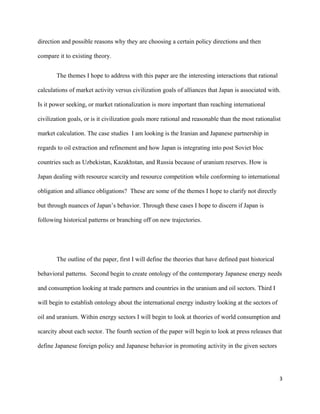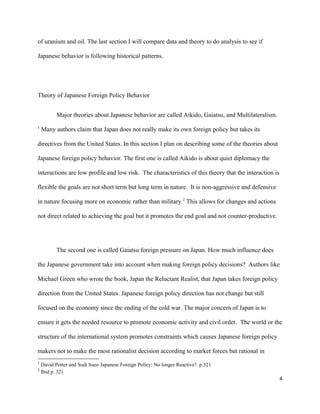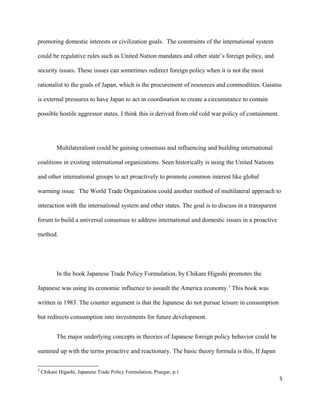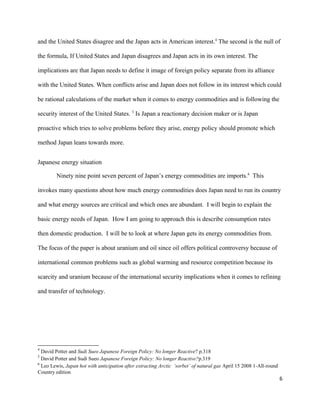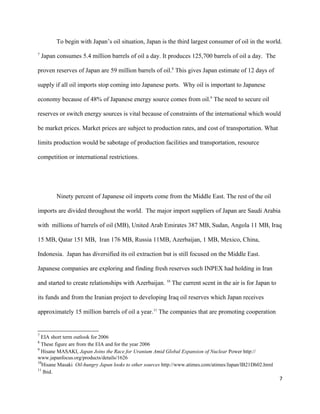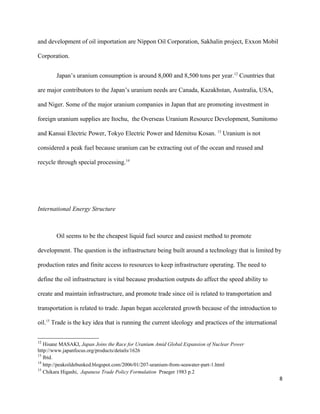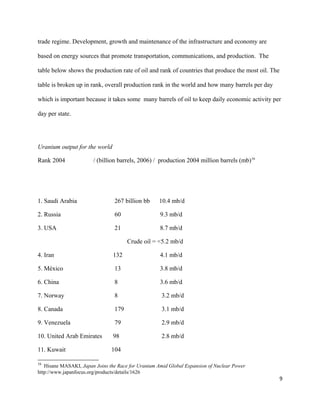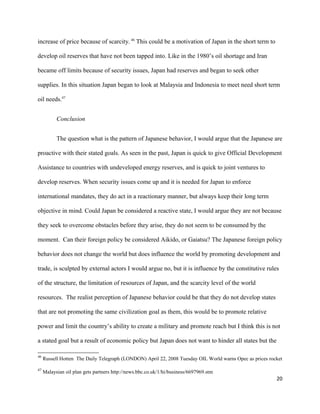This document provides background information on Japanese energy policy and foreign policy behavior. It discusses several theories that have historically framed Japanese foreign policy, including "Aikido" which focuses on quiet, flexible diplomacy. It also examines the theory of "Gaiatsu" which suggests Japanese policy is heavily influenced by pressure from the US. The document then provides details on Japan's current energy situation, noting it imports over 99% of its energy needs and is highly dependent on oil. The aim of the paper appears to be analyzing Japan's energy-related foreign policy activities concerning oil and uranium to determine if its behavior aligns with historical theories or is evolving in new ways.
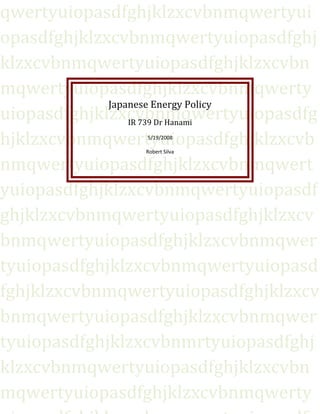
![Introduction
Abstract
[This paper is about Japanese energy foreign policy. I will begin to look at historical
patterns (theory) of Japanese foreign policy behavior; then determine Japan’s current energy
situation. Second I will be to define Japanese business interactions associated with government
foreign policy; then apply existing theory to determine if Japan is following historical patterns
and which pattern Japan is following ]
The main purpose of the paper is to examine Japanese foreign policy and activities
concerning the oil and the uranium industry. What I hope to derive from the paper is trade
interactions since the cold war is over and the United States is not fighting the communist
menace anymore but is Japan still under influence of the United States foreign policy objectives.
Is the war against communism just transferred from the war against terrorism? Those countries
that are associated with terrorist practices and norms considered states that Japanese should not
do business with. During the cold war, Japan did not assist communist label countries and only
did business with countries that were consider pro liberal practices or anti communist states. Is
Japan still taking foreign policy direction from the United States of America?
The method of the paper is to use existing scholarly articles and books that have already
written about to define historical patterns of Japanese foreign policy behavior and theory. I try to
use as many primary and news sources to gather data about Japanese activity in energy field
which is focused on oil and uranium. The gathering of speech acts and narratives, government
and business documentation and press releases about policy. This is to help discern which
2](https://image.slidesharecdn.com/756227bb-68b5-471b-96a9-dc259435275c-160826055238/85/JapaneseEnergy-2-320.jpg)
